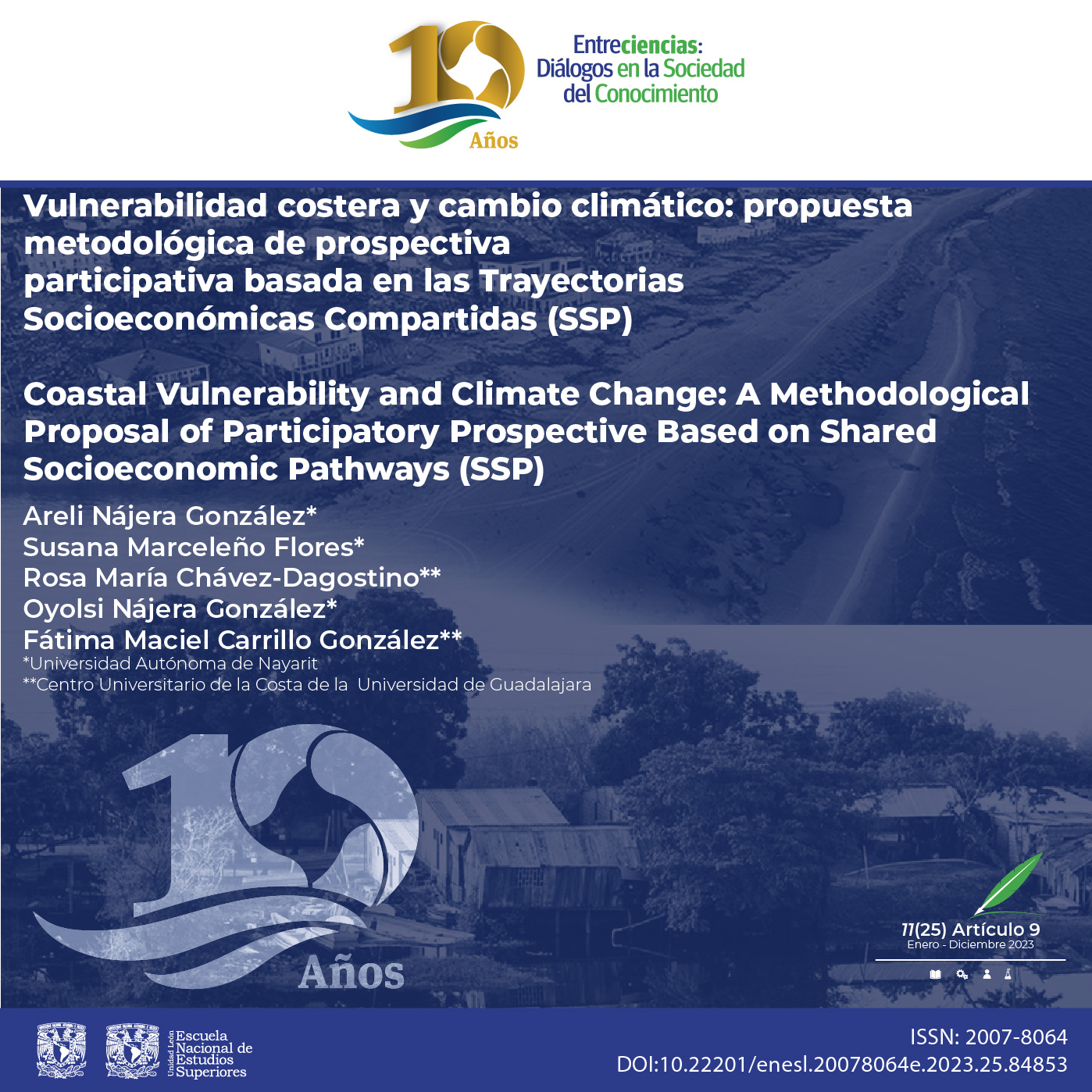Coastal Vulnerability and Climate Change: A Methodological Proposal of Participatory Prospective Based on Shared Socioeconomic Pathways (SSP)
Main Article Content
Abstract
Purpose: To design a participatory prospective process based on SSP scenarios to estimate the future vulnerability to climate change in a coastal territory taking San Blas, Nayarit, a rural area with tourist activity on the Mexican Pacific, as a case study.
Methodological design: Based on the principles of territorial prospective, the method consisted of two sections: The development of a prospective diagnosis where a model is presented to analyze historical, current, and trend-based territorial vulnerability and the design of a participatory prospective process, which included the selection of key actors, spatial-temporal delimitation, scenario selection, and dynamics of the prospective workshop.
Results: According to the diagnosis, the vulnerability of the area increased from a low to medium level between 2000 and 2019, and it is projected to increase to a medium-high level in 2038. The most vulnerable areas were those covered by estuarine and mangrove ecosystems. Regarding the participatory prospective methodology, a guide in the form of a workbook is presented detailing the dynamics to conduct the workshop, addressing three SSP scenarios.
Research limitations: The main limitation was the scarcity of local-level information to analyze each of the vulnerability components in the prospective diagnosis. The application of the proposed methodology for the prospective workshop and its results will be subject to analysis in a second phase of the research.
Findings: Ecotourism-oriented tourist activity can serve as the vehicle to drive the proposal and implementation of adaptation strategies to reduce vulnerability to climate change.
Downloads
Article Details
Citas en Dimensions Service

This work is licensed under a Creative Commons Attribution-NonCommercial-NoDerivatives 4.0 International License.

Entreciencias: Diálogos en la Sociedad del Conocimiento recognizes and respects the moral rights of authors as well as ownership rights transferred in non-exclusivity to the journal for its open access dissemination and its preservation. Hence, authors who publish in this journal accept the following conditions:
- Entreciencias: Diálogos en la Sociedad del Conocimiento from Universidad Nacional Autónoma de México is distributed under a Licencia Creative Commons Atribución-NoComercial-SinDerivar 4.0 Internacional, which allows the information and metadata to be used without commercial ends as long as proper citation is utilized.
Authors will have the right to non-exclusively distribute the contribution made to Entreciencias: Diálogos en la Sociedad del Conocimiento. That is, they will be able to include it in an institutional repository or disseminate it in other digital or printed media as long as it is explicitly stated that it was first published in Entreciencias: Diálogos en la Sociedad del Conocimiento. The following information must additionally be included: author, year, volume, page numbers, electronic paging, and DOI.
Authors, whose publications have been accepted, will have to send the Letter of Copyright Transfer in the corresponding format, filled out and signed by the author or authors.
